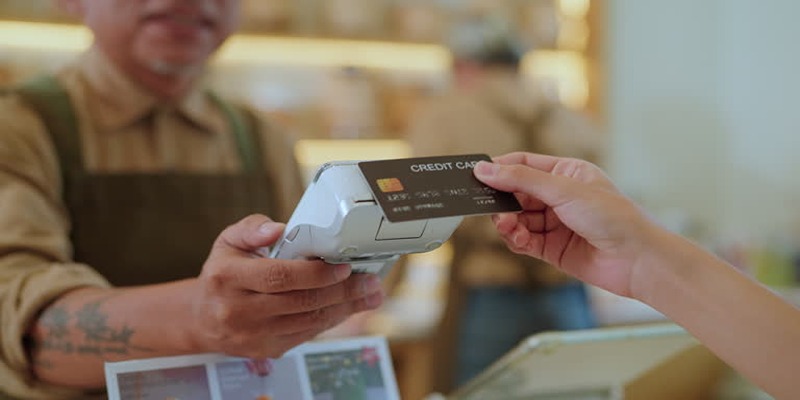Do You Really Need a Credit Card? Pros and Cons Explored
Advertisement
Credit cards are a commonly used financial tool, but they come with both benefits and risks. They offer convenience, reward points, and a way to build your credit score, but they can also lead to debt if not used wisely. This guide will help you understand the pros and cons of having a credit card, so you can decide if it is the right choice for your financial needs and lifestyle.
What Is a Credit Card?

Credit cards are financial tools that enable users to obtain restricted sums of bank or institutional funds. You can use a credit card to make payment transactions including shopping purchases and payments for bills while obtaining cash advances on certain occasions. The billing period ends with an obligation to return the borrowed funds which can be done as a complete repayment or by performing the minimum payment.
Your creditworthiness and the issuer determine which features accompany your credit card including benefits programs and rates and fees. Customers benefit from credit cards by gaining portability and adaptability yet financial misuse through such cards leads to unneeded debt accumulation.
The Benefits of Having a Credit Card:
1. Build and Strengthen Your Credit History
A credit card is a powerful tool for building or improving your credit history. By using it responsibly—making timely payments and keeping balances low—you can establish a strong credit profile. A good credit score unlocks better financial opportunities, such as lower interest rates on loans, mortgages, and other forms of credit.
2. Convenience and Enhanced Security
Credit cards provide a seamless and secure way to make purchases, whether in-store or online. They’re widely accepted across the globe and often come with fraud protection. If your card is lost or stolen, most issuers will refund unauthorized charges, offering peace of mind in uncertain situations.
3. Rewards and Exclusive Benefits
Many credit cards offer rewards programs, like cashback, travel points, or discounts, turning your everyday spending into added value. Over time, these perks can accumulate significantly. Some cards also come with extra benefits, such as travel insurance, extended warranties, and purchase protection, elevating your overall experience.
4. A Financial Safety Net for Emergencies
In urgent situations—like unexpected car repairs or medical bills—a credit card can act as a reliable backup for immediate access to funds. However, it’s crucial to use this option cautiously and have a repayment plan to avoid unnecessary debt.
5. Simplifies Budgeting and Expense Tracking
Credit cards provide detailed monthly statements that help you track your spending habits, making it easier to manage your budget. Many cards also include tools and apps to categorize expenses and set financial goals, giving you better control of your finances.
Drawbacks of Having a Credit Card
1. High Interest Rates
Failing to pay your balance in full each month can result in steep interest charges, which can quickly snowball into significant debt. Over time, carrying a balance may outweigh any rewards or benefits you’ve earned.
2. Costly Fees
Credit cards often come with a variety of fees, including annual fees, late payment penalties, and foreign transaction charges. If not carefully managed, these expenses can add up and eat into your budget.
3. Risk of Overspending
The convenience of credit cards makes it easy to lose track of your spending. Without proper monitoring, this ease of use can lead to overspending and, in turn, a cycle of debt that’s challenging to escape.
4. Potential Damage to Credit Score
While responsible credit card use can boost your credit score, poor management can have the opposite effect. Late payments, high balances, or maxing out your credit limit can negatively impact your credit profile, making it harder to secure loans or favorable interest rates in the future.
5. Overreliance on Credit
Credit cards can create a false sense of financial stability, tempting you to rely on borrowed money instead of building savings. This habit may leave you unprepared for emergencies or unexpected financial challenges.
Who Should Be Cautious with Credit Cards?
- Impulse Shoppers: If you find it challenging to control spending, a credit card may lead to financial strain.
- Those Already in Debt: Adding a credit card to your financial mix could worsen existing debt issues and make repayment more difficult.
- Fans of Simplicity: For those who prefer straightforward finances, relying on cash or a debit card might be a better fit.
Alternatives to Credit Cards:

Not sure if a credit card is the right choice for you? Here are some alternatives to consider:
1. Debit Cards
Debit cards let you spend only what you have in your bank account, making them a smart way to avoid debt. However, they lack the credit-building capabilities and rewards that credit cards provide.
2. Secured Credit Cards
A secured credit card requires a security deposit, which acts as your credit limit. This is a great option for building credit responsibly while minimizing the risk of overspending.
3. Prepaid Cards
Prepaid cards are loaded with a specific amount of money and function much like a debit card. They’re excellent for managing budgets but won’t help you build credit over time.
4. Personal Loans
For larger expenses, personal loans can often provide lower interest rates compared to credit cards. Keep in mind, though, they require a good credit score and come with fixed repayment terms.
How to Use a Credit Card Wisely?
A credit card can be a powerful financial tool if used responsibly. Follow these tips to make the most of it while avoiding potential pitfalls:
- Always Pay in Full: Eliminate interest charges by paying off your entire balance every month. This helps you avoid costly debt.
- Stick to a Budget: Keep your spending under control by setting a budget and tracking expenses to prevent overspending.
- Review Statements Regularly: Check your account frequently to spot errors or unauthorized transactions early.
- Limit Cash Advances: Cash advances come with steep fees and high interest rates—use them only as a last resort.
- Know Your Card’s Terms: Take the time to understand your card’s interest rates, fees, and rewards program to maximize its benefits.
Conclusion:
Credit cards, when used wisely, can be a valuable financial tool, offering advantages like building credit, earning rewards, and providing convenience. However, they also pose risks, such as high-interest charges and the temptation to overspend. Before applying for a credit card, take time to assess your spending habits, financial goals, and overall needs to ensure it aligns with your situation.
On this page
What Is a Credit Card? The Benefits of Having a Credit Card: 1. Build and Strengthen Your Credit History 2. Convenience and Enhanced Security 3. Rewards and Exclusive Benefits 4. A Financial Safety Net for Emergencies 5. Simplifies Budgeting and Expense Tracking Drawbacks of Having a Credit Card 1. High Interest Rates 2. Costly Fees 3. Risk of Overspending 4. Potential Damage to Credit Score 5. Overreliance on Credit Who Should Be Cautious with Credit Cards? Alternatives to Credit Cards: 1. Debit Cards 2. Secured Credit Cards 3. Prepaid Cards 4. Personal Loans How to Use a Credit Card Wisely? Conclusion:Advertisement












